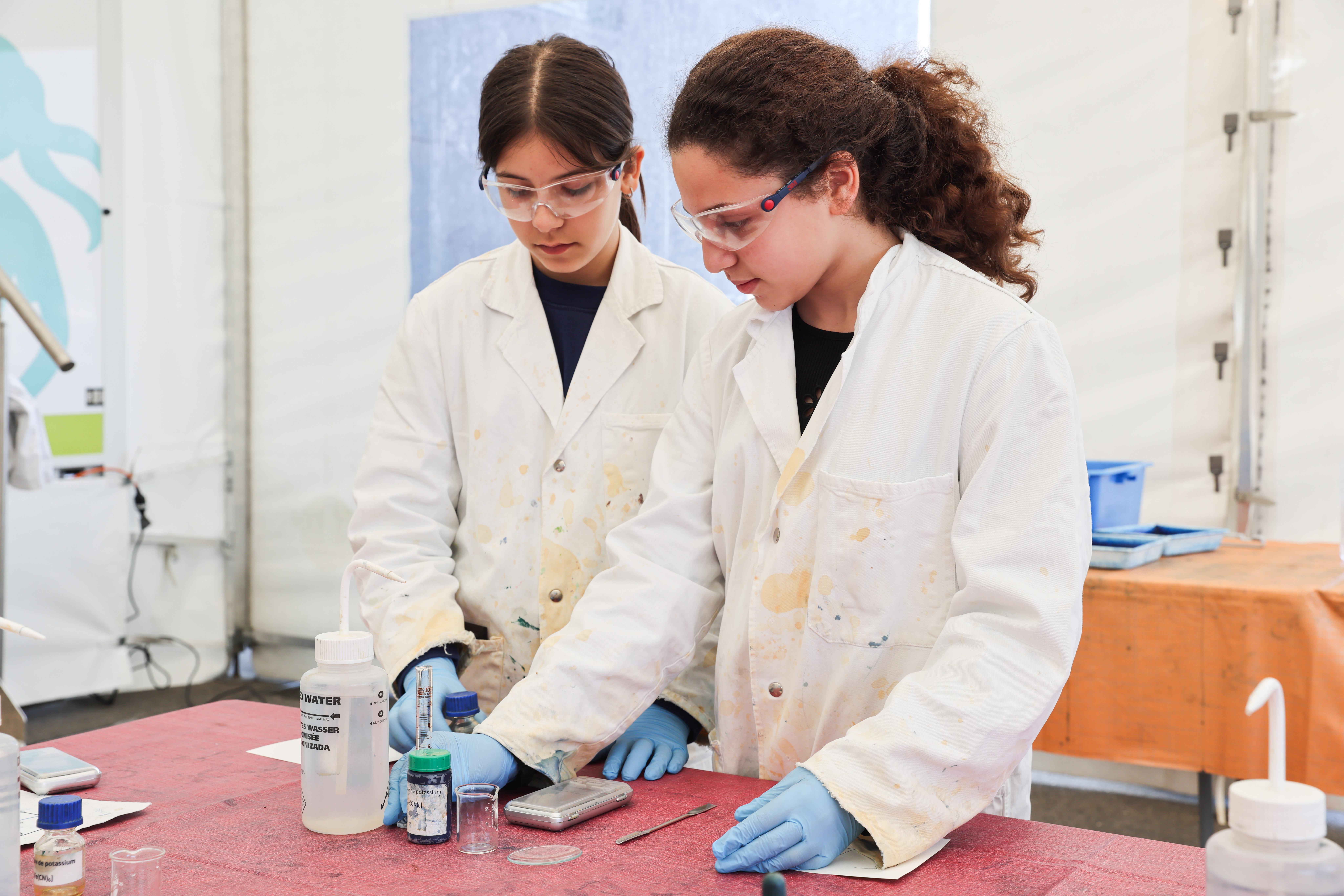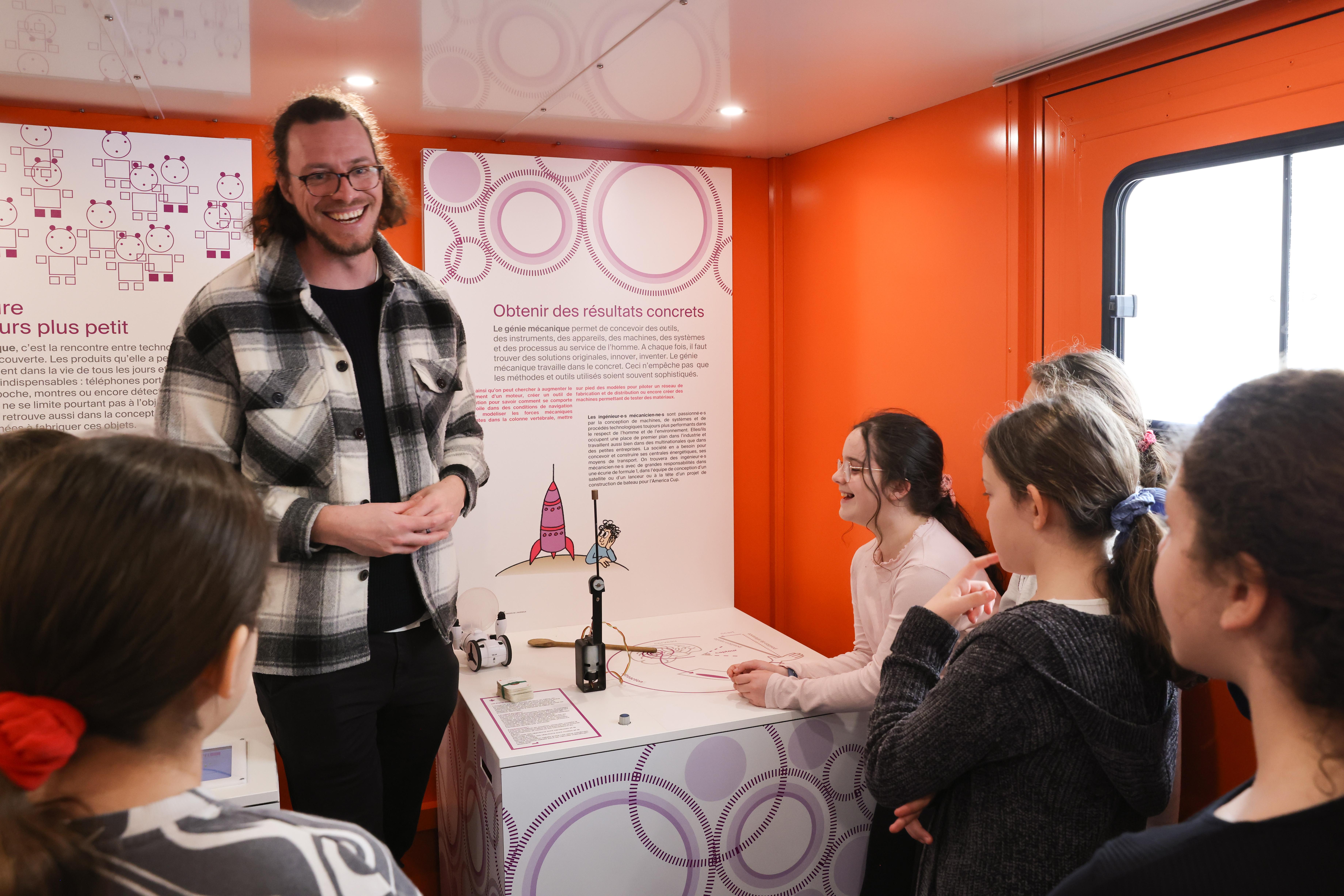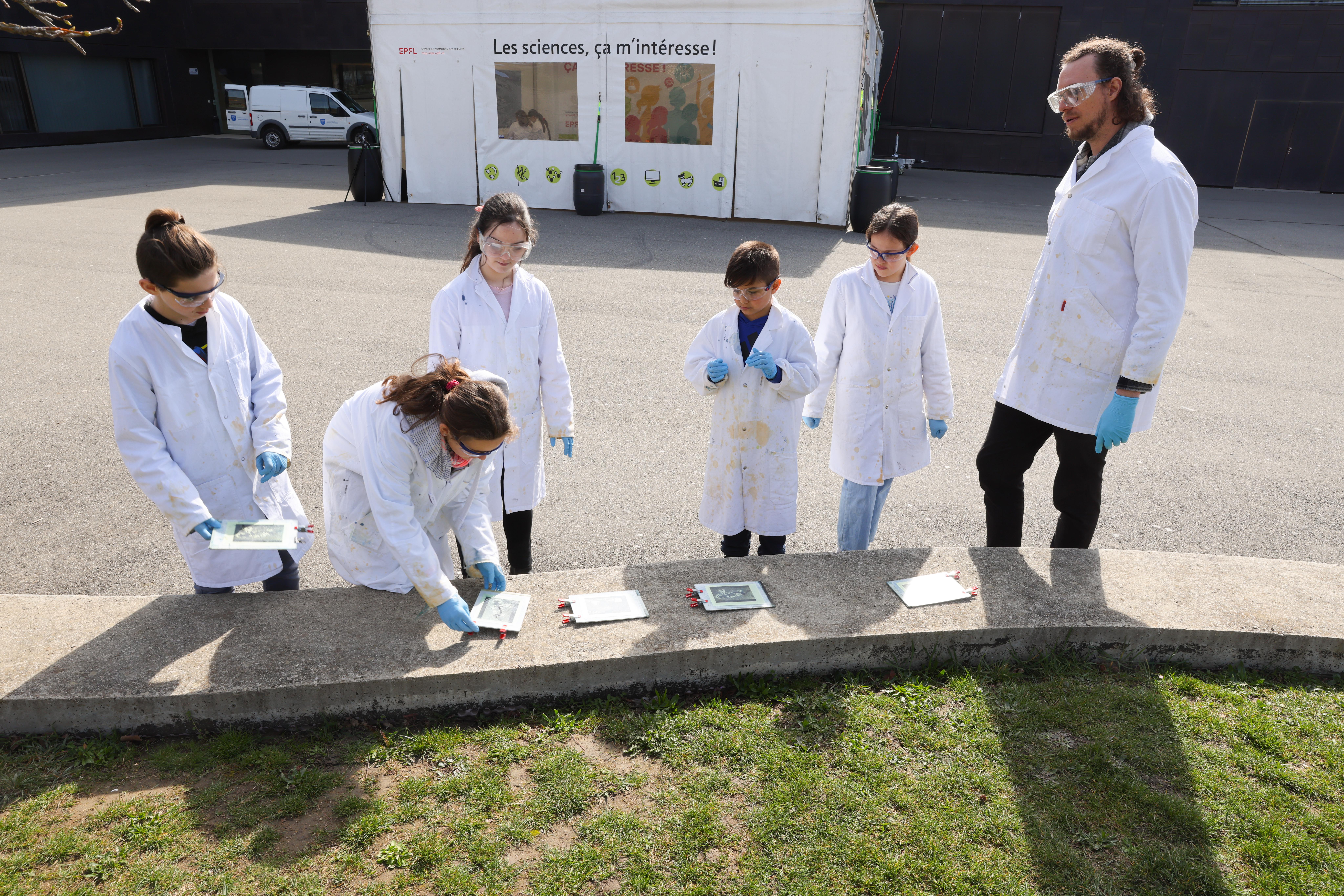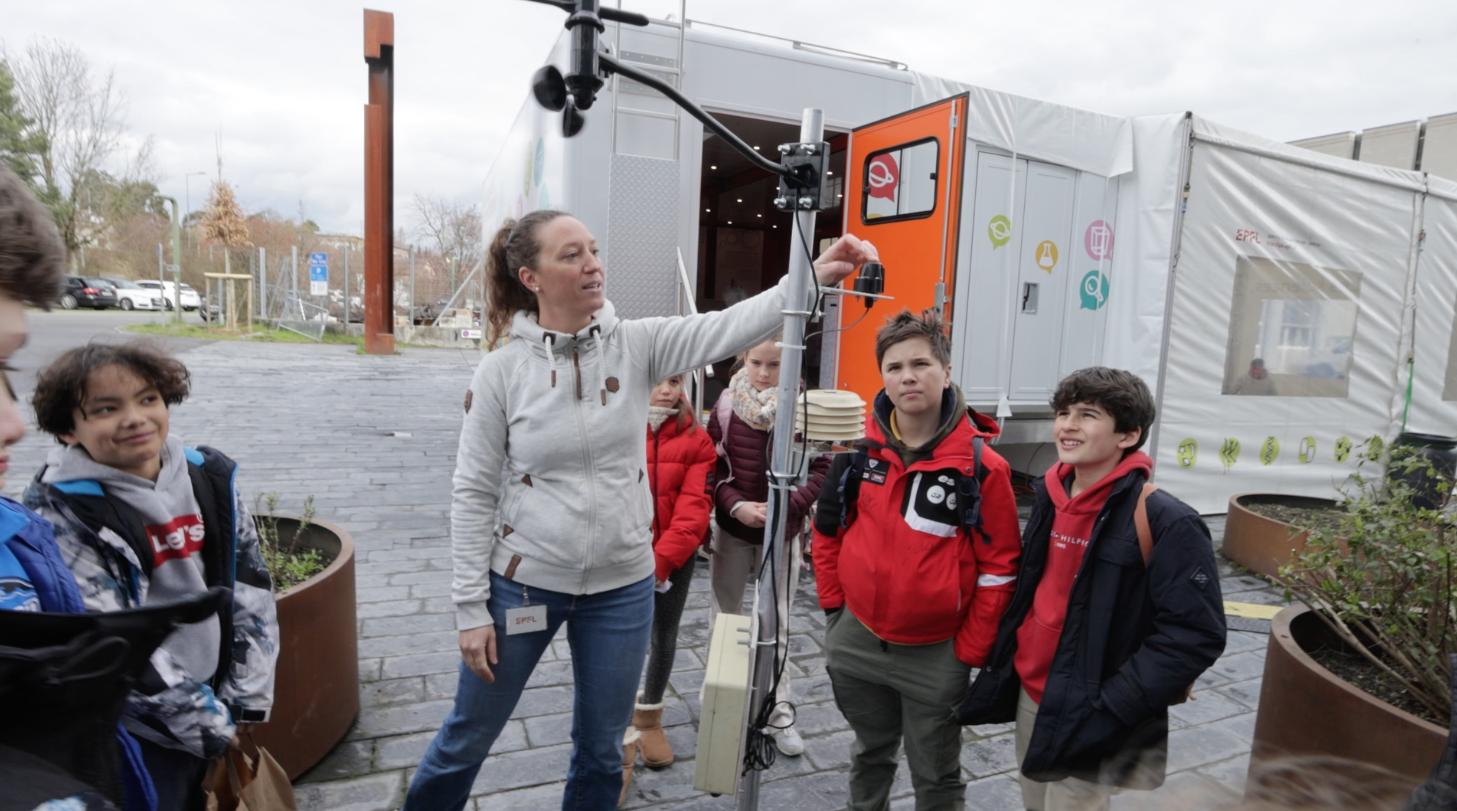This spring, the EPFL Science Bus - a mini EPFL on wheels - is setting off on the road once again, bringing fun experiments to schools across French-speaking Switzerland. More than 45,000 children have taken part in science and engineering taster sessions since the program launched 15 years ago.
The Science Bus is akin to a "mini EPFL" on wheels, bringing science to classrooms far away from the Lausanne campus. Each year, the bus crisscrosses French-speaking Switzerland between spring and the start of the fall semester. At each stop on the route, a tent is unfurled and children and teachers are invited to attend fun, educational sessions on science and engineering.

Rather than simply watch demonstrations, participants have a chance roll up their sleeves and get stuck in, with an exhibition and hands-on workshops on subjects covering all 13 EPFL sections: chemistry, robotics, computer science, architecture, civil engineering and more. "Each module is developed or approved by the corresponding section," says Farnaz Moser, the brains behind the Science Bus program and head of EPFL's Science Outreach Department. "For instance, we offer photochemistry experiments to illustrate chemistry, shape-memory materials to illustrate materials science, and drawing robots to illustrate microengineering." For Moser, the project serves a purpose that's close to her heart: "It's important to get out there, meet with people, familiarize them with EPFL, and promote science and engineering to young people living far away from our School." The program has been a resounding success since it launched in 2009: each year, the available time slots are fully booked. "Each stop on the route is like a mini science festival," says Moser.

© 2024 EPFL/Alain Herzog - CC-BY-SA 4.0
An opening show
The arrival of the Science Bus is an event in its own right, causing a wave of excitement at each host school. On the first day, all schoolchildren are invited to watch a fun science show, with startling, eye-opening experiments that wow enraptured children and seasoned teachers alike. But the attendees aren't just passive spectators: the children are encouraged to ask questions to really understand the processes at work. This two-way interaction also gives facilitators a chance to talk about EPFL and the importance of science in everyday life.
On the next day, lower- and upper-secondary pupils enter a tent one class at a time to learn more about science and engineering subjects through an interactive exhibition and hands-on experiment: chemistry for the younger children and a robotics taster session for the older pupils. "Many of the modules have remained unchanged since 2009 because the experiments illustrate the scientific and engineering foundations of each subject," says Moser. "For instance, children learn what an algorithm is by solving a puzzle, and gain insight into concepts such as surface tension, binary code, light absorption and the workings of an electric motor."

© 2024 EPFL/Alain Herzog - CC-BY-SA 4.0
3,000 visitors a year
Each year, the Science Bus spends 15-16 weeks on the road, hosting 10 classes of 20 pupils each. That amounts to 3,000 visitors a year - and 45,000 since the program launched 15 years ago. In other words, this unconventional vehicle is a major contributor to science outreach. And while the onboard experiments pull in the crowds, the real stars of the show are the facilitators, each committed to sharing their scientific and engineering know-how. "We have around 20 facilitators who come from many different backgrounds," says Moser. "Their complementary education and experience are a great source of new ideas and content." EPFL students also take part in the program, gaining their first work experience in the process. "These students are trained by facilitators and receive a certificate of employment when they leave EPFL," says Moser. "Many of them come back to us asking for references."







